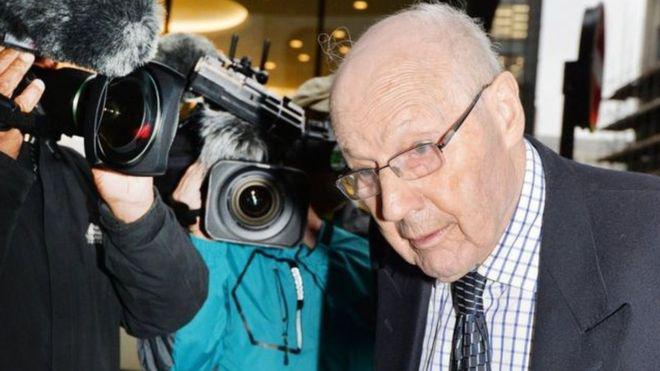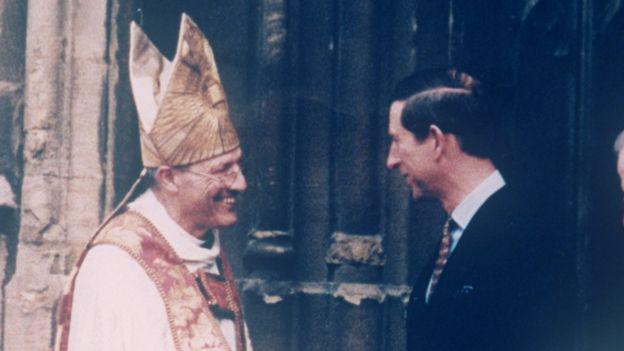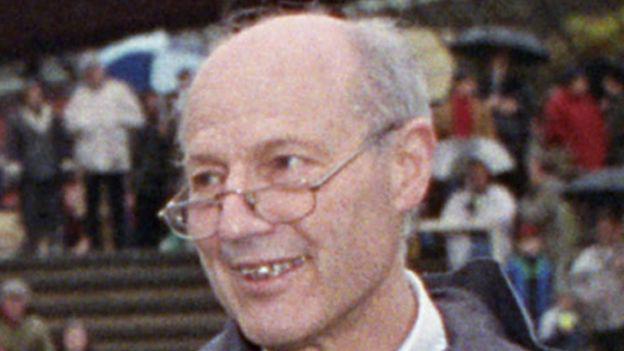|
'Cover up' allowed Bishop Peter Ball to escape justice
By Colin Campbell
A victim of sexual abuse at the hands of a bishop has claimed a "deeply sinister, co-ordinated cover up" allowed him to escape justice. Bishop Peter Ball, who was jailed last year for abusing young men between the 1970s and 1980s, was investigated by police in 1993 and given a caution. He admitted to his defence team, which included a priest, that he had committed sexual offences. Gloucestershire Police said a thorough investigation took place. Documents seen by the BBC suggest Ball's defence team sought to do a deal with the police to avoid the "scandal of a trial". Ball, who was previously Bishop of Lewes, promised to resign as Bishop of Gloucester and "immediately leave the country", but instead continued to officiate as a priest in the Church of England until 2010. The Reverend Graham Sawyer, one of the men abused by Ball said: "It looks like there was a deeply sinister, coordinated, but probably in the end rather inept attempt at a cover-up." The documents, described as being for the information solely of the Bishop of Chichester and the then Archbishop of Canterbury, George Carey, say Ball had been "abusing not only his office but very many young men". Analysis by Colin Campbell, BBC South East home affairs correspondentThese documents are significant because they appear to show the Bishop of Chichester, the late Eric Kemp, was made aware that Peter Ball had abused many young men in 1993. Despite this, in later years Bishop Kemp described Peter Ball's victims as "mischief makers". This is something that caused Peter Ball's survivors further pain, anguish and upset. The question is which other senior members of the Church of England clergy knew Ball was an offender? And how was Peter Ball allowed to continue working in churches up until 2010 when clergy knew he had confessed and were informed he was responsible for a string of sex attacks? Lord Carey has declined to comment on the documents. He said he would answer questions put to him by both the Goddard Inquiry into child sex abuse and the Church's own review into Ball's abuse. He told the BBC last year he knew nothing of the investigation, nor anything of its author. The current Archbishop of Canterbury, Justin Welby, has appointed Dame Moira Gibb as chair of the independent review into the case. In the documents, retired detective Wayne Murdock is said to have discussed with Ball's legal team "the need to prevent a scandal in the press, especially as Peter was a frequent visitor to Sandringham and is friendly with Prince Charles". Cliff James, another of Ball's victims, said: "I think it is shocking. It's really disturbing how it appears senior establishment figures clustered together to shield Bishop Peter." Mr Murdock was described as "sympathetic" in the documents, adding that he confided in Ball's defence team that he was educated by a clergyman who attended a religious group founded by Peter Ball and his twin brother. In a statement, he said his "investigation was conducted with the highest standards of integrity, transparency and impartiality." He denies any deal was done, stating the "decision as to how the case was disposed of in 1993 was ultimately taken by the DPP [Director of Public Prosecutions]." Gloucestershire Constabulary said they reviewed their original handling of the case in 2012. "The original investigation was of a thorough standard and there is no reason to believe that anything was overlooked," a spokesman said. The CPS said last year the decision not to prosecute Ball in 1993 was "wrong". "There was sufficient evidence and it was in the public interest to prosecute at the time," a spokesman said. "Furthermore, in order for a caution to be given, a suspect must first make full and frank admissions to the alleged offence. It is clear from our records that such admissions were not made in the appropriate way. "Our approach to sexual abuse has changed fundamentally since 1993 and we are confident that such a decision would not be made by prosecutors today."
|
.
Any original material on these pages is copyright © BishopAccountability.org 2004. Reproduce freely with attribution.


